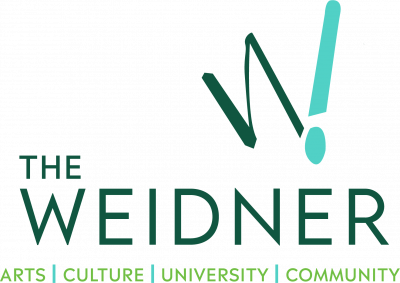
What You’ll Hear
Weidner Philharmonic – The Sky Is Not The Limit
April 12, 2025
Program notes by J. Michael Allsen
What You’ll Hear at Wei Phi | Joaquín Rodrigo (1901-1999)
A la busca del más allá (In Search of the Beyond)
background
In a long multifaceted career, Joaquin Rodrigo worked as a pianist, music critic, university professor, radio executive, and as an activist for the Spanish National Organization for the Blind. (Rodrigo was almost completely blind from age three as a result of Diphtheria.) However, from the 1940s onwards he was also recognized as one of Spain’s foremost composers. As a young man, he studied in Paris, the center of the avant garde, but Rodrigo described his own style as neocasticista (neo-traditional). Much of his mature music was rooted in distinctly Spanish forms and rhythms, and he was particularly focused upon the guitar, the most prominent instrument of Spanish traditional music. However, in this case, there is not a guitar in sight and the music is more generally abstract and modernist in style.
In 1971, Rodrigo visited the United States—in part to be at the American premiere of his duo-guitar concerto, the Concierto madrigal, at the Hollywood Bowl, but also to be a tourist. While in Houston, he and a companion visited what is now called the Johnson Space Center, and they welcomed to the Spanish composer warmly, even allowing the blind Rodrigo to handle a moon rock brought back by one of the Apollo missions. Then in 1976, the Houston Symphony asked him for a work celebrating the American Bicentennial. Rodrigo responded with a symphonic poem titled A la busca del más allá, which he dedicated to NASA astronauts. And in factS, panish-American astronaut Miguel López-Alegría—who had been born in Rodrigo’s hometown, Madrid—took a CD containing the work with him when he flew on the space shuttle in 2002 on a mission to the International Space Station
What You’ll Hear
If your previous experience with Rodrigo’s music has been Spanish-flavored works like the Concierto de Aranjuez, this will come as a surprise. There is little about this work that is identifiably “Spanish.” As the composer wrote:
“the work can be classified as a Symphonic Poem, although with a marked abstract character, since its music does not have the story or descriptive content normally associated with this genre. However, at the beginning and end, there are drum beats that fade into the distance, with the purpose of evoking in the listener the sense of mystery associated with ‘the beyond’.”
This is in fact perfect “outer space” music, anticipating by a few years what John Williams would much more famously do in his scores for the Star Wars movies, E.T., and Close Encounters of the Third Kind. Much of the music is static, with flute, English horn and other woodwinds combining with quiet percussion above an unchanging harmony. At several points, a grander theme is introduced and dominates, but it always fades back into the ethereal woodwind music.

Joaquín Rodrigo (1901-1999)
Visit Joaquin Rodrigo’s Official Website
Rodrigo composed this work in 1976 for the Houston Symphony, who played the first performance on March 27, 1978, under the direction of Anthoni Ros Marbá. Duration 17:00.
This is a late work by Rodrigo, in which he set aside his usual style to create an effective tone painting of the boundless universe.
The Sky Is Not The Limit: this is the link between the five works in this Weidner Philharmonic program.
We open with a stunning brass and timpani “sunrise” fanfare from Strauss’s Also sprach Zarathustra. This was made famous by its use in the classic 1968 film 2001: A Space Odyssey, where it is used to represent the Monolith and all of its powers. Jennifer Jolley’s Flight 710 to Cabo San Lucas who is named for a (fictitious) airline flight, but is actually music that’s out of this world in another way: channeling the music of James Brown! Jennifer Higdon’s blue cathedral is both a tribute to her brother and an ethereal vision of a cathedral in the sky. Joaquín Rodrigo’s A la busca del más allá (In Search of the Beyond) is dedicated to NASA astronauts. Finally, Katajh Copley’s Equinox is inspired by both the astronomical meaning of the word, and a more personal meaning as well.
Weidner Philharmonic The Sky Is Not The Limit
Saturday, April 12 – 6:30 PM at The Weidner
Conducted by UW-Green Bay Chancellor – Michael Alexander
- Tickets Starting at $25
- Student Tickets $16
- Weidner Members Get Up to 30% Off Tickets

